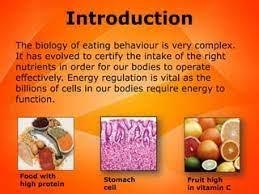Introduction
Eating habits are complex and often intertwined with various psychological factors. In understanding the nuances of why and how we eat, a psychological perspective becomes essential. This article delves into the intricate web of psychological influences that shape our eating behaviors, aiming to shed light on the motivations behind our food choices.
Emotional Eating
Emotional eating involves turning to food for comfort during times of stress, sadness, or other emotional states. Understanding the impact of emotions on dietary habits is crucial for addressing unhealthy eating patterns.
Stress and Food Preferences
Stress can significantly impact the types of foods we crave and consume. Exploring the relationship between stress and specific food preferences provides insights into coping mechanisms related to eating.
Cultural Background and Taste
Cultural influences play a pivotal role in shaping taste preferences. An individual’s cultural background can dictate what foods are considered enjoyable or repulsive, influencing dietary choices.
Peer and Societal Pressures
The social environment, including peer pressure and societal norms, plays a significant role in shaping eating behaviors. Understanding how external influences impact food choices is essential for promoting mindful eating.
Childhood Experiences
Early childhood experiences with food can leave lasting imprints on eating habits. Recognizing the influence of childhood on current dietary choices is key to addressing and reshaping unhealthy behaviors.
Trauma and Eating Habits
Traumatic experiences can be linked to specific eating habits. Acknowledging the connection between trauma and food choices is vital for individuals seeking to cultivate healthier relationships with food.
The Concept of Mindful Eating
Mindful eating involves being fully present during meals, paying attention to sensations, and savoring flavors. Embracing a mindful approach to food fosters a healthier relationship with eating.
Techniques for Cultivating Mindfulness
Practical techniques, such as mindful breathing and attentive eating, can be incorporated into daily life. These techniques help individuals develop mindfulness around their eating habits.
Identifying Food Addictions
Recognizing and addressing food addictions is a critical step in breaking unhealthy eating patterns. Strategies for managing cravings and fostering healthier habits are explored.
Strategies for Overcoming Emotional Eating
Emotional eating can be addressed through alternative coping mechanisms. Strategies for identifying emotional triggers and implementing healthier responses are discussed.
The Role of Therapy
Cognitive Behavioral Therapy (CBT) is a valuable tool in addressing eating disorders. By targeting negative thought patterns and behaviors, CBT supports individuals in developing healthier attitudes toward food.
Changing Negative Thought Patterns
Challenging and changing negative thought patterns related to food and body image is a central focus of CBT. This process contributes to a more positive and balanced approach to eating.
Impact of Nutrition Education
Nutrition education plays a crucial role in shaping food choices. Promoting awareness of balanced diets, nutritional value, and making informed decisions contributes to healthier eating habits.
Promoting Awareness of Balanced Diets
Educational programs can highlight the importance of a balanced diet, emphasizing the need for a variety of nutrients to support overall health and well-being.
Influences of Mood on Food Preferences
Understanding how mood influences food preferences is essential for developing a nuanced approach to emotional well-being. Exploring the connection between mood and food choices can inform healthier habits.
Food as a Means of Self-Care
Recognizing the role of food as a form of self-care allows individuals to develop alternative strategies for managing mood without relying solely on eating.
Gradual Changes for Long-Term Success
Building sustainable eating habits involves making gradual changes. This approach increases the likelihood of long-term success and helps individuals avoid the pitfalls of restrictive diets.
Creating a Supportive Environment
Establishing a supportive environment for healthy eating is crucial. Cultivating a positive atmosphere at home, work, and in social settings reinforces healthy habits.
Strategies for Accommodating Dietary Needs
Individuals with specific dietary restrictions require strategies for accommodating their needs. This includes communication with others and finding suitable alternatives in various situations.
Balancing Individual Preferences
Balancing individual dietary preferences within social contexts involves finding common ground. Encouraging understanding and flexibility among peers and in social settings promotes a positive relationship with food.
Online Food Delivery
The rise of online food delivery services has reshaped how individuals access and choose their meals. Examining the impact of this convenience on eating habits provides insights into modern dietary trends.
Nutrition Apps
Nutrition apps offer information and tracking features that influence eating behaviors. Understanding the role of technology in shaping food choices allows individuals to use these tools mindfully.
Conclusion
In conclusion, understanding eating habits from a psychological perspective is essential for promoting healthier relationships with food. By exploring emotional, cultural, and social influences, individuals can gain insights into the motivations behind their dietary choices. Embracing mindful eating, breaking unhealthy patterns, and considering the impact.
